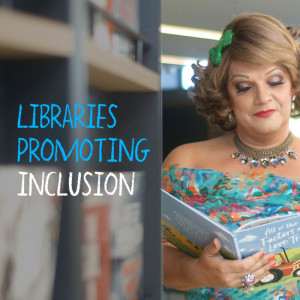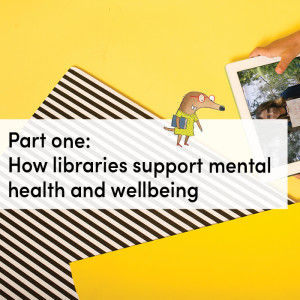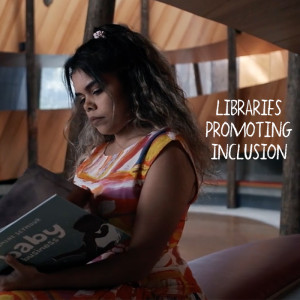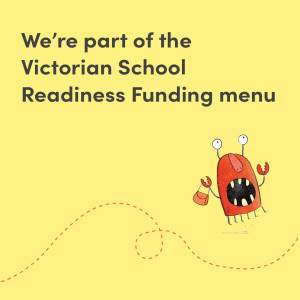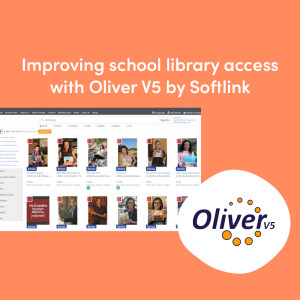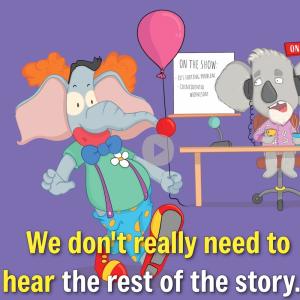Part two: How libraries support mental health and wellbeing
24 Oct 2021
In part two of our blog series on libraries supporting mental health and wellbeing, we are sharing firsthand experiences and stories from library subscribers, and the important role they play for families and children in their communities. Story Box Library (SBL) spoke with Frankie Jaiyeola, State Library Queensland Librarian & SBL’s Librarian Storyteller of the Year (LSTOY) 2020 Winner, and Pip Mullins, Library Officer at City of Melville Libraries in Western Australia, and LSTOY runner-up.
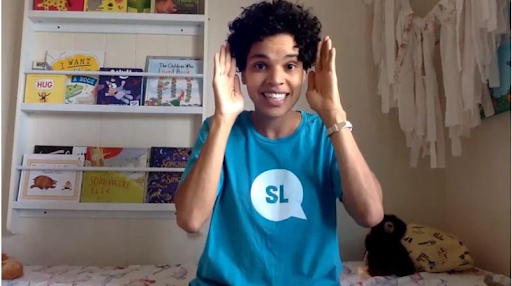
Written by Frankie Jaiyeola, State Library Queensland Librarian & SBL’s Librarian Storyteller of the Year 2020 Winner
March 2020 will always be remembered as the month Covid came to Australia. It was a scary time, especially for families. With lockdown and social distancing came an end to libraries’ face-to-face programs, and the beginnings of a new conversation.
As safe places for families, we were now asking ourselves, how can libraries be safer? How can we stay connected to families and children at a time when storytelling, singing and play was needed the most?
At State Library QLD, we adapted quickly by bringing our First 5 Forever programming online. Before long, library staff were delivering daily Story Time, Rhyme Time, even Play Time sessions, from their own homes. Lounge rooms were transformed into underwater wonderlands. Stories were being told with pets and instruments were being played.
In a sense, Covid enabled us freedom to think creatively and sustainably – to create a mode of connectivity that was enduring through an uncertain time and into a very different future.
Our online delivery connected families in a kind of virtual coffee shop where lockdown survival stories were shared. Libraries gave families a whole new way to connect, from home. And importantly, we enabled children a sense of continuity and a familiar, friendly face to interact with every day.
Through the Corner at Home, library staff demonstrated online how everyday household items could become opportunities for play at home. At a time when playgrounds were off limits, we brought play to life in the kitchen!
State Library’s First 5 Forever webpage became a platform to offer more support for families through this time. Through regular blogs, we adapted our narrative to help parents deal with children’s ‘big’ emotions. We shared tips on how to use age-appropriate language to respond to children’s questions. We shared recommendations for online resources and audio books from our collection that parents could access without leaving home. And through weekly emailed First 5 Forever tips, we continued to connect families with early literacy strategies that were accessible through everyday activities and conversations at home.
Indeed, this was, and still is, a time for libraries to demonstrate resilience and resourcefulness. We have changed the way we tell stories, and we have many new stories to tell.
Frankie’s recommended State Library of Queensland resources:
“We integrate positive mental health practices in the library via stories and storytelling on SBL by promoting the connection between literacy and mental health well-being and normalising that conversation around it,” Pip Mullins, Library Officer at City of Melville Libraries in Western Australia, explains.
“I’ve witnessed the calmness that comes over children when they are watching a storyteller bring their characters to life.
“It is not only about literacy development but also mental health well-being and we encourage parents to undertake activities in conjunction with stories, especially those about feelings, which normalises for children the importance of acknowledging their emotions.”
Pip Mullins describes the various programs and services which engage diverse kids and families, and the importance of having access to high quality literature.
“We understand that social connection is critical for good mental health and also having a sense of purpose – even getting out of the house to peruse library books is an important goal for many people who may be isolated, or lonely,” Pip says.
“Our libraries are an essential part of social structure providing physical spaces where communities and connections form.”
Pip says the City previously provided Sensory Rhyme Time sessions for children with Autism.
“Staff will be trained in providing similar Rhyme Time sessions in 2022 by the Sensorium Theatre,” Pip says.
“The Willagee Library runs after school programs for children who are at risk and this program is supported by our Youth Engagement Officers to provide youth with a variety of programs and a safe space to access.”


